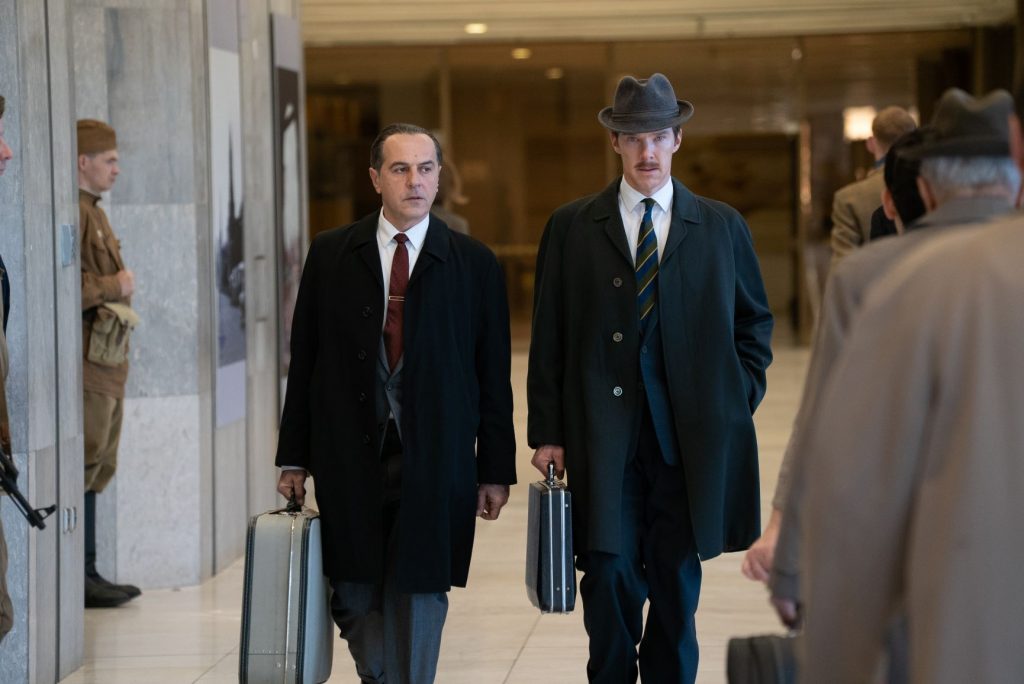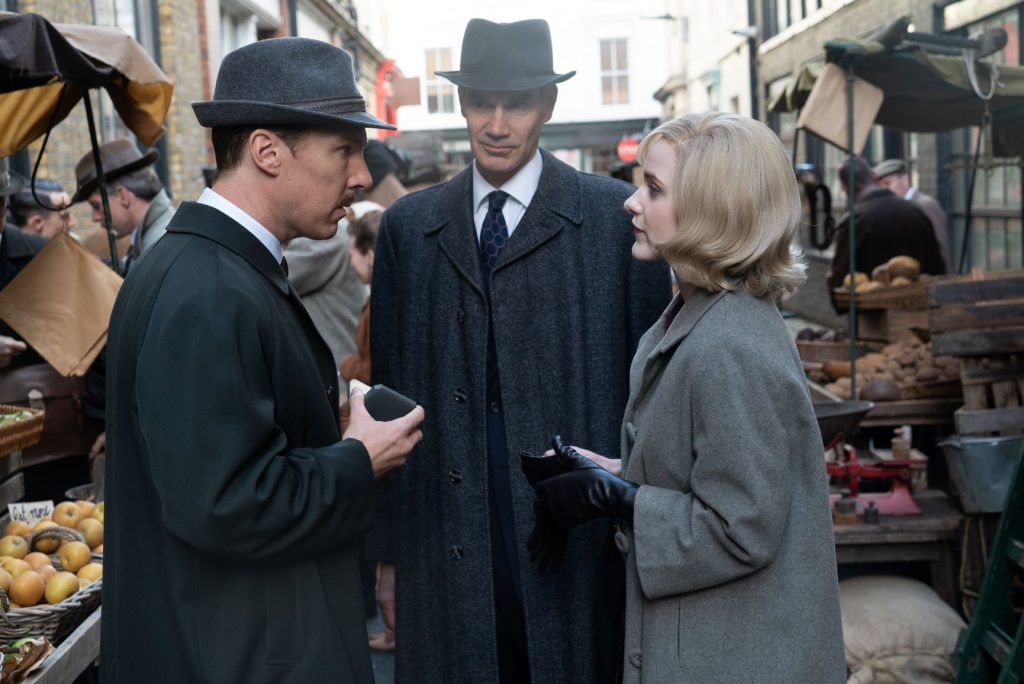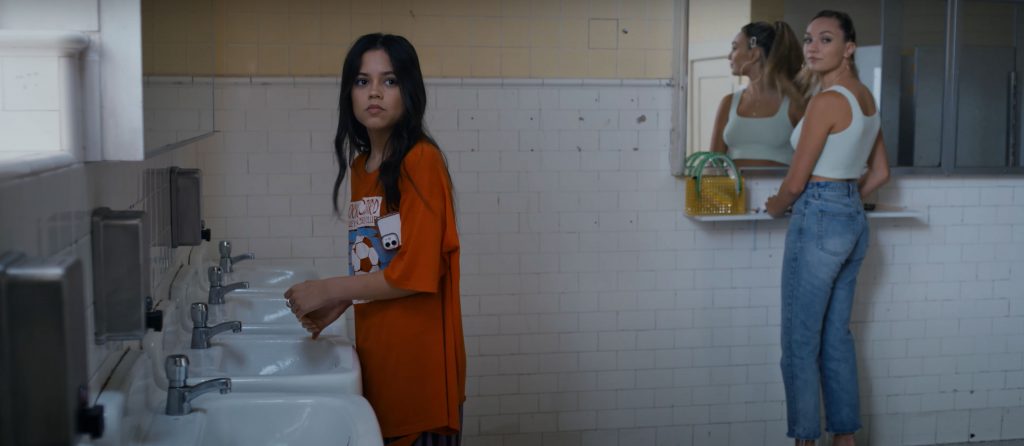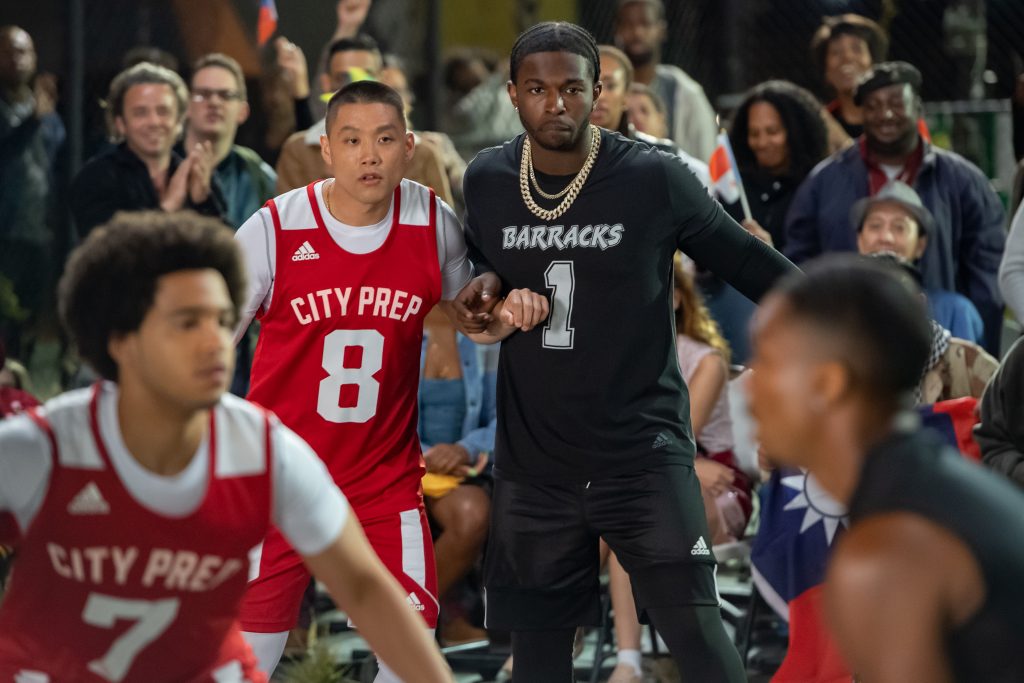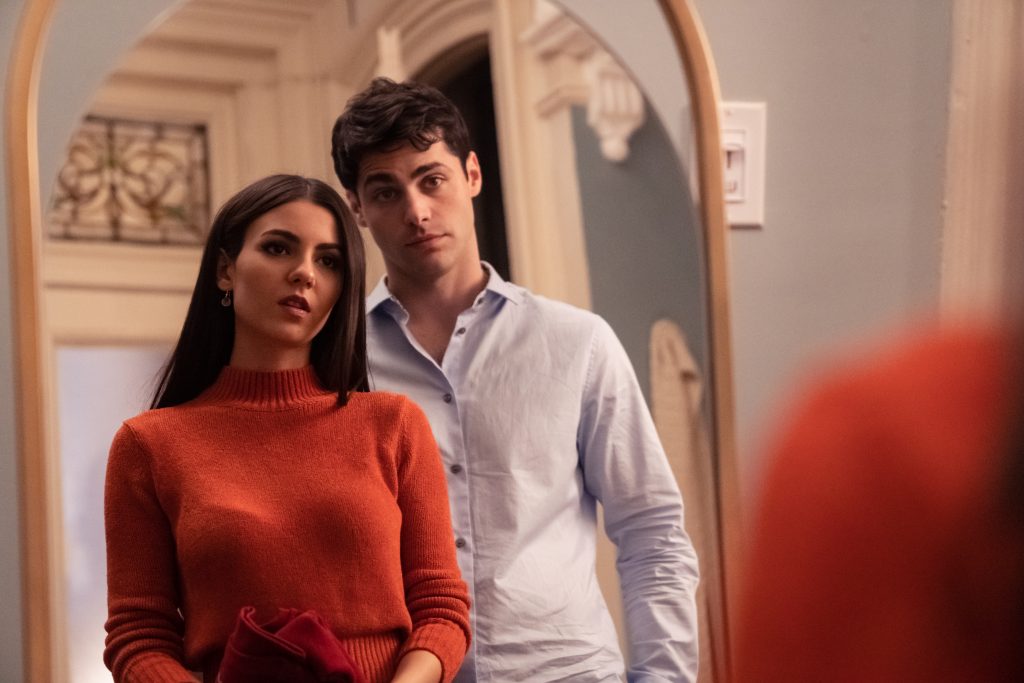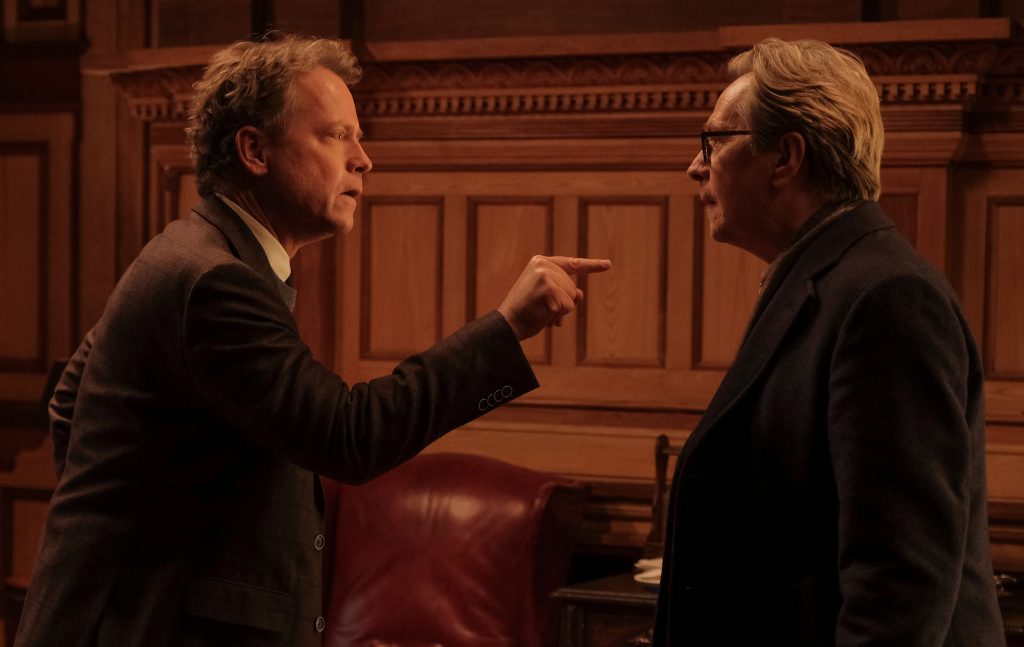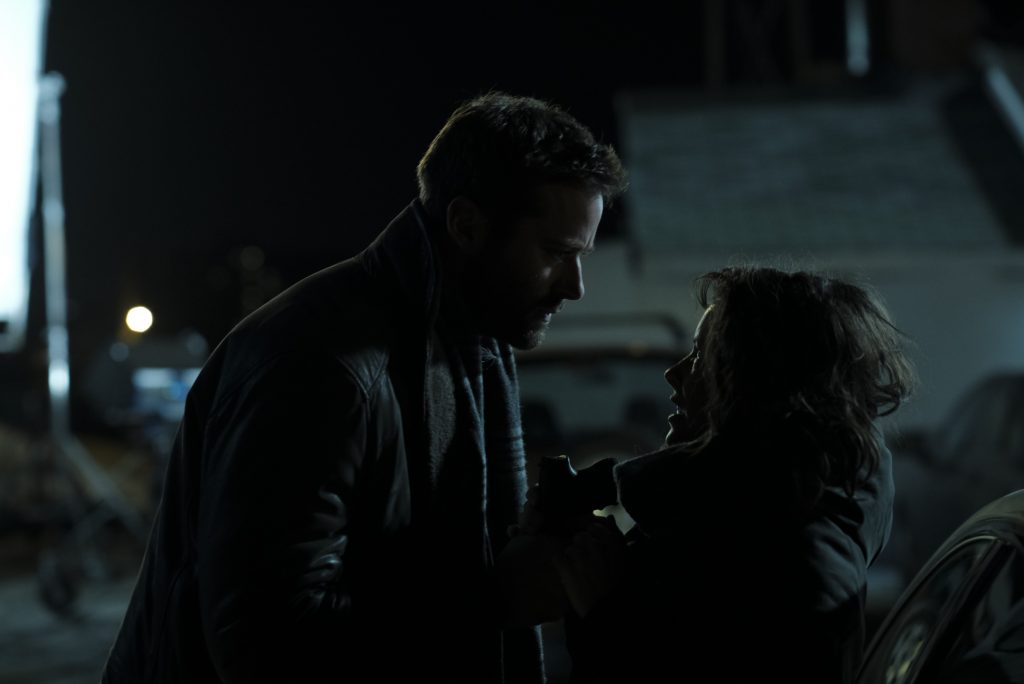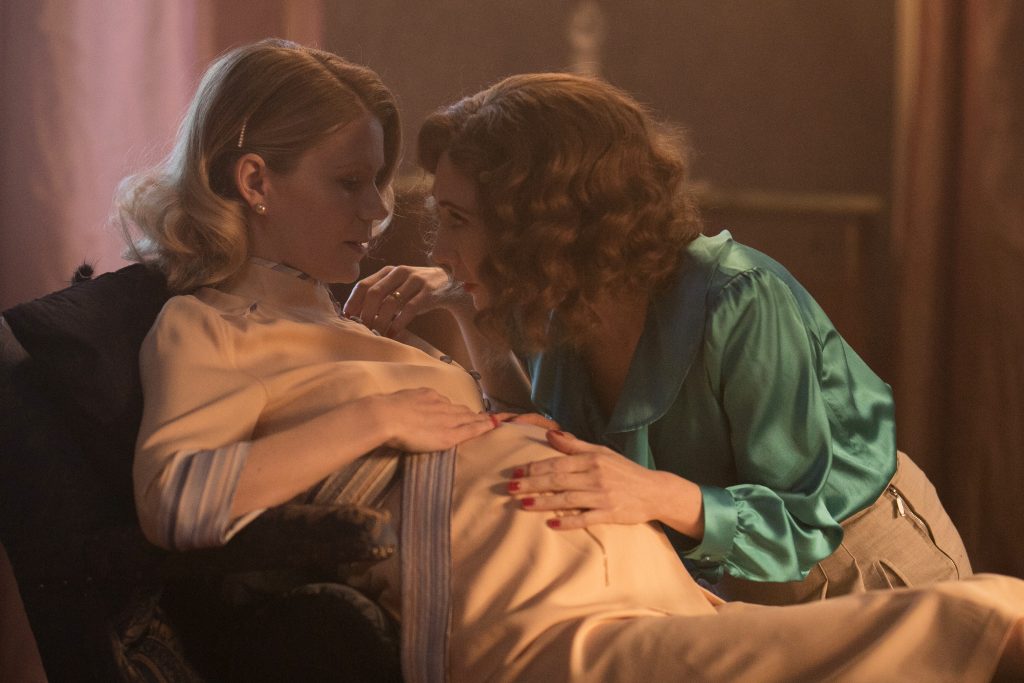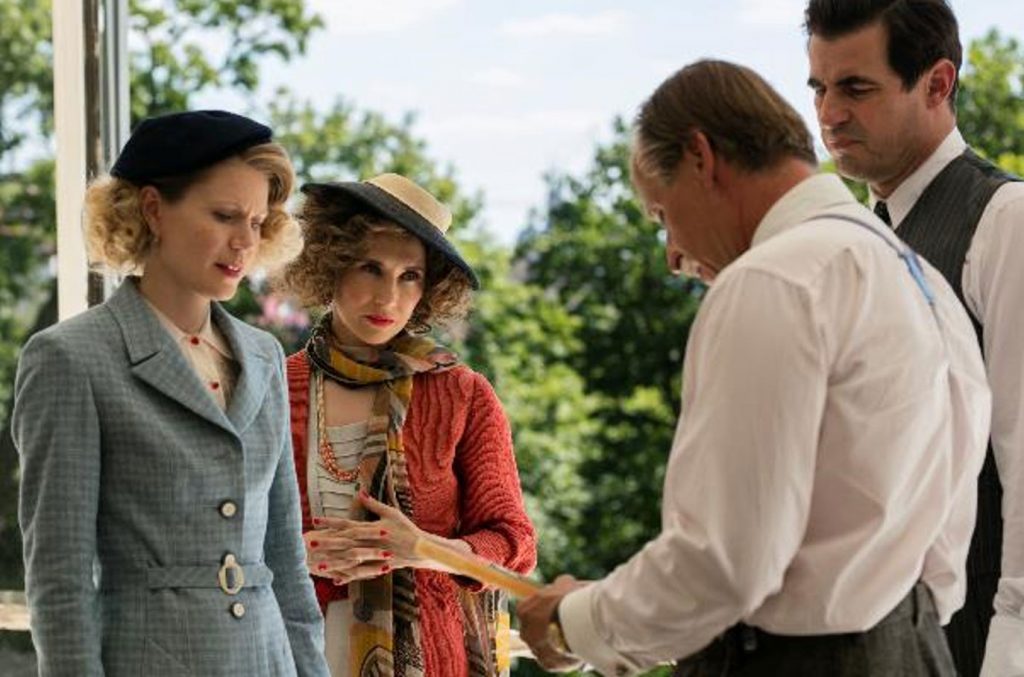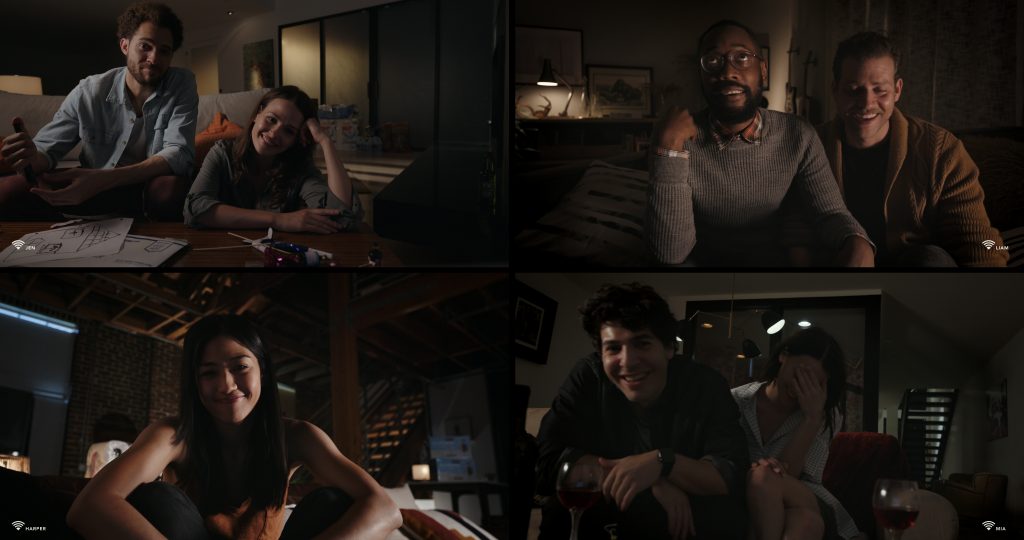March 27, 2021
by Carla Hay
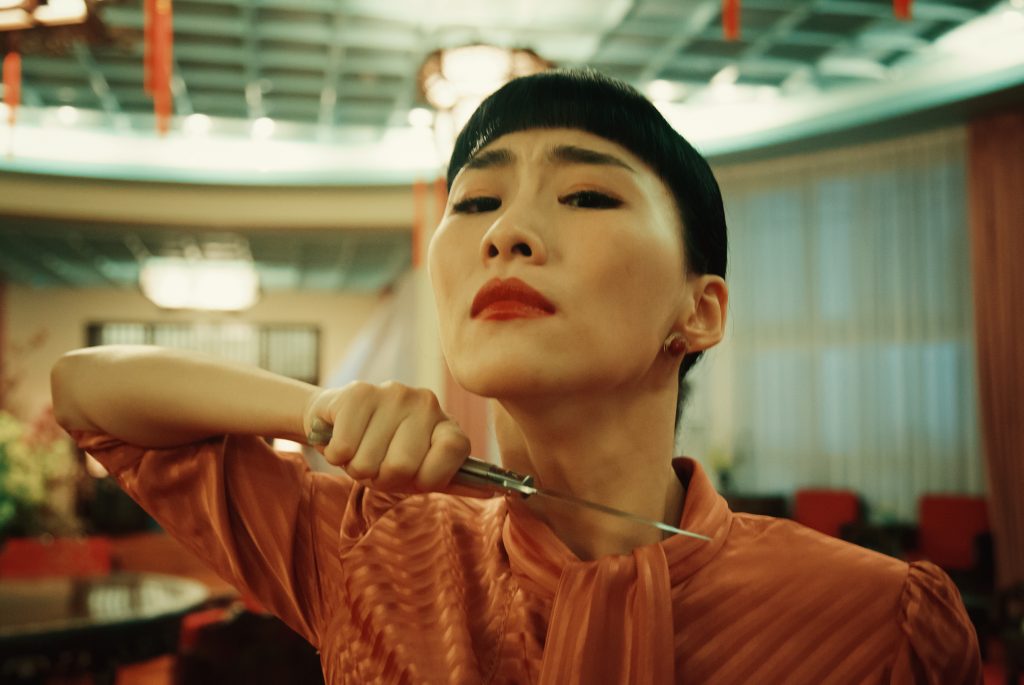
Directed by Midi Z
Taiwanese and Mandarin with subtitles
Culture Representation: Taking place in Taiwan, the dramatic film “Nina Wu” features an all-Asian cast of characters representing the working-class, middle-class and wealthy.
Culture Clash: An unknown actress gets her big break with a starring role in a movie, but she has to cope with sexual predators in the industry and secrets in her personal life.
Culture Audience: “Nina Wu” will appeal primarily to people who are interested in stylish-looking arthouse movies that are character studies with unsettling subject matter.

“Nina Wu” is an artistically filmed movie-within-a-movie story that takes an unflinching and often-disturbing look at the compromises and indignities that entertainers, particularly women, experience in their quest for fame. The movie tells the story of Nina Wu (played by Ke-Xi Wu), a struggling actress in Taiwan who gets a big break by landing her first starring role in a feature film. But she has to confront what this role will cost her when she finds out that it comes with a heavy price to her dignity and self-worth.
Ke-Xi Wu co-wrote the screenplay of “Nina Wu” with the movie’s director Midi Z, and she says the story is inspired by some of her real-life experiences. She gives a very compelling performance in this movie, which contrasts its beautifully styled aesthetic with the ugly truths of what often goes on behind the scenes in showbiz. The movie tends to be a little jumbled in story structure, but the message behind the film is clear.
Nina’s backstory comes out in bits and pieces in flashbacks and other descriptions. Viewers will have to be comfortable with movies that play out in a non-linear manner. Nina is an aspiring actress who moved from a suburban area to the big capital city of Taipei. Her father (played by Cheng Ping-Chun) runs a factory in Taiwan. And she was discovered by a talent agent when she working at a market stall.
However, Nina’s life as an actress isn’t go so well for her in Taipei. In the movie, Nina (who also goes by the name Sufen) works as a cam girl to pay her bills. Nina has been hiding her struggles as an actress from her family and other people she knows in her hometown. As far as they know, she’s been getting respectable work as a small-time actress and is living a pretty good life in Taipei.
In a meeting with her agent (played by Rexen Cheng), who’s been working with Nina for the past six years, he reminds her that she hasn’t been in a feature film the entire time that he’s worked with her. She has only been in short films. However, the agent (who doesn’t have a name in the movie) tells Nina that he’s gotten an offer to audition for a starring role in a feature film (a spy thriller set in the 1960s) where she would be required to do explicit sex scenes. It’s not a pornographic film, but it’s a movie where there’s little left to the imagination when it comes to sex.
Nina is hesitant to do the audition, but the agent says that any good actor wouldn’t turn down a role because of nudity. (What he doesn’t mention is the reality that women are much more likely than men to be required to have nude scenes in non-pornographic films.) The agent says that he will leave the decision up to Nina. And he tells her that big Hollywood stars take a role for two reasons: It’s a good character or it’s good pay.
Nina decides to audition for the role. And what she goes through in the rest of the story is an emotionally draining experience that also forces her to confront secrets that she’s denied or kept from other people in her life. During the audition process, she meets with a female casting director (played by Hsieh Ying-Hsuan), who tells Nina that Nina’s performance should be as natural as possible. By way of comparison, she asks Nina, “When you take a shower, do you worry about being naked?”
Nina then auditions for a panel of filmmakers. The casting director is the only woman in this group of decision makers. Nina gets the role, but that’s the easy part of making the film. Things get much harder for her when she has to work with the very demanding and sexist director (played by Shih Ming-Shuai), who doesn’t hesitate to be derogatory to her. Most of the characters in “Nina Wu” do not have names. It might be the “Nina Wu” filmmakers’ way of showing how these experiences are so common that they could apply to many people without specific names attached.
Nina’s starring role in the movie is as a woman in a troubled love affair that nearly drives her character to violence with a knife. She threatens to kill her lover and herself. The director is abusive in the name of getting the performance that he wants out of Nina. He chokes her to get her in an agitated mindset. In another incident, he slaps Nina.
Because the director is a highly acclaimed filmmaker in the industry, people on the movie set act as if Nina should feel lucky to work with him. And so, Nina starts to second-guess her discomfort at how she is being treated in this very male-dominated and demeaning work environment. Everyone around her acts like this physical abuse is “normal,” so Nina doesn’t complain about it. It’s also her very first feature film, and she doesn’t want to be perceived as a “difficult person,” which could ruin other career opportunities for her.
At a New Year’s dinner with her family (including her parents, aunts and uncles), they give a toast to Nina to congratulate her on the movie role and wish her success. But as Nina’s career seems to be taking off and she gets some media attention for being cast in the movie, she becomes more miserable inside. Nina’s movie is expected to be a critically acclaimed hit, but this possibility of becoming a famous actress doesn’t bring Nina the true happiness that she expected.
Nina doesn’t say it out loud, but she’s thinking about how her family might react when they find out about the explicit sex scenes that she has in the movie. And she wonders how this high-profile role might affect how she’s perceived in the entertainment industry. Will she be typecast as someone who does sexually explicit performances? Nina is also having nightmares that a woman is chasing her in a life-threatening way.
On the movie set for one of the sex scenes, the director says that the scene is supposed to convey the hopelessness of life. Far from being passionate, the scene is coldly and clinically choreographed. In a set-up for a threesome in the movie, Nina and two male actors pose in sexual positions to test the lighting and are told not to show any emotions while posing.
Instead of feeing like a glamorous movie star, Nina feels like an exploited piece of meat. Nina has no real friends in Taipei, so she turns to a longtime friend of hers named Kiki (played by Sung Yu-Hua, also known as Vivian Sung), a school teacher she knows from her hometown. Nina confides in Kiki about a dream that she had where Oscar-winning actress Nicole Kidman told Nina to hold on to a tree during a storm. And then, Kidman disappeared and Nina was washed away in the storm.
Kidman was probably in Nina’s dream because in real life, Kidman has done several nude/sex scenes in her career. Kidman is often named as an example of a highly respected and versatile actress who’s able to do big-budget studio films and edgier independent films. The storm in the dream is a metaphor for the inner turmoil that Nina feels about doing the sex scenes in the movie. And it’s a problematic situation where Kidman isn’t going to come to Nina’s rescue.
There’s something else that Nina has to come to terms with as she deals with her conflicted feelings about starring in this sexually explicit movie: Nina is a lesbian and she’s in love with Kiki. Nina’s family doesn’t know about her true sexuality. Ultimately, Nina has to decide if she wants to live openly as a lesbian and how she wants to handle her feelings for Kiki.
In the midst of these issues in her love life and career, Nina has to deal with some crises in her family. Her father’s factory has gone bankrupt and her mother (played by Wang Chuan) has a heart attack. Nina then visits her hometown to help her family during this difficult time. And it should come as no surprise that Nina sees Kiki again during this visit.
The movie-within-a-movie part of “Nina Wu” offers some chilling parallels to the character that Nina plays on screen and who she is off-screen. Both Nina and her on-screen character are tortured in some way by love and sexuality. “Nina Wu” takes a very dark turn toward the end of the film when it shows how women are often pitted against each other by rich and powerful men for their own perverse pleasures. Nina and some other actresses who were in a group of auditioners, including a woman identified in the credits by the name Girl No. 3 (played by Hsia Yu-Chiao), are abused in this sick and twisted game.
Not all the villains in the story are men, because the movie shows that some women can be just as complicit or active in sexual misconduct as men can be. However, within the realm of the entertainment industry, as depicted in “Nina Wu,” men tend to have the most money and power. What’s most haunting about the movie is that the sexual harassment and other degradation portrayed in the movie are all too-often what many desperate and vulnerable people experience in real life when predators abuse their power and exploit people who want to achieve their dreams.
Film Movement released “Nina Wu” in New York City on March 26, 2021. The movie’s release expands to more cinemas in U.S. cities and on digital and VOD on April 2, 2021. The DVD release date is May 18, 2021.

